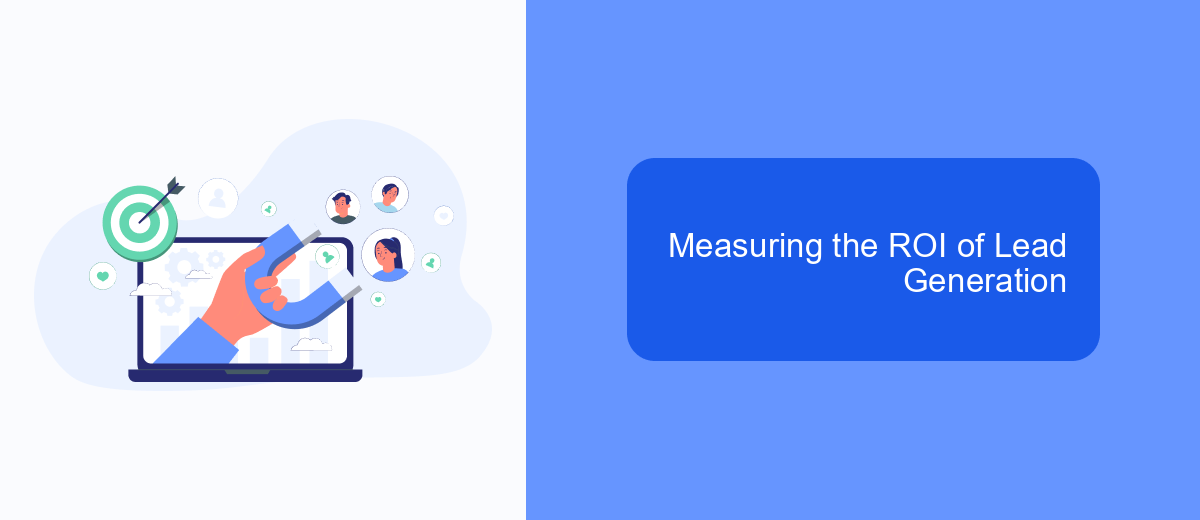Lead generation has become a cornerstone of modern business strategies, promising substantial returns on investment. As companies strive to attract and convert potential customers, the question arises: Is lead generation truly profitable? This article explores the financial benefits and challenges of lead generation, providing insights into how businesses can optimize their efforts for maximum profitability.
Lead Generation: A Profitable Endeavor
Lead generation has emerged as a highly profitable endeavor for businesses of all sizes. By effectively capturing and nurturing potential customers, companies can significantly boost their revenue streams. The success of lead generation lies in its ability to identify and convert interested prospects into loyal customers.
- Increased Sales: High-quality leads result in higher conversion rates and increased sales.
- Cost Efficiency: Automated lead generation tools reduce the need for extensive manual labor, saving time and resources.
- Targeted Marketing: Businesses can focus their marketing efforts on specific demographics, ensuring better engagement.
- Enhanced Customer Insights: Lead generation provides valuable data on customer preferences and behaviors.
Integrating various tools and services can further enhance the profitability of lead generation. For example, SaveMyLeads simplifies the process by automating lead data transfer between different platforms, ensuring that businesses can quickly and efficiently follow up with potential customers. This seamless integration not only saves time but also maximizes the chances of converting leads into actual sales.
Benefits of Lead Generation

Lead generation offers numerous benefits for businesses looking to expand their customer base and increase revenue. By identifying and targeting potential customers, companies can tailor their marketing efforts to attract individuals who are more likely to be interested in their products or services. This targeted approach not only improves conversion rates but also maximizes the return on investment for marketing campaigns. Furthermore, lead generation helps businesses build a robust sales pipeline, ensuring a steady flow of prospects that can be nurtured and converted over time.
Another significant advantage of lead generation is the ability to integrate and automate processes using tools like SaveMyLeads. This service allows businesses to seamlessly connect various platforms and streamline the lead management process. By automating lead capture, distribution, and follow-up, companies can save time and reduce the risk of human error. Additionally, the integration capabilities of SaveMyLeads enable businesses to maintain consistent communication with prospects, enhancing the overall customer experience and increasing the likelihood of successful conversions.
Strategies for Successful Lead Generation

Effective lead generation is crucial for any business looking to grow its customer base and increase revenue. To achieve successful lead generation, it’s important to employ a variety of strategies that attract and convert potential customers.
- Content Marketing: Create high-quality, valuable content that addresses the needs and pain points of your target audience.
- SEO Optimization: Optimize your website and content for search engines to improve visibility and attract organic traffic.
- Social Media Engagement: Leverage social media platforms to engage with your audience, share content, and generate leads.
- Email Marketing: Use personalized email campaigns to nurture leads and guide them through the sales funnel.
- Integrations and Automation: Utilize services like SaveMyLeads to automate lead capturing and integration with your CRM or email marketing tools.
By implementing these strategies, businesses can effectively generate and nurture leads, ultimately converting them into loyal customers. Remember to continuously analyze and refine your approach based on performance data to optimize your lead generation efforts.
Measuring the ROI of Lead Generation

Measuring the ROI of lead generation is crucial for understanding the effectiveness of your marketing efforts. To determine the return on investment, you need to track various metrics and analyze the data to see how well your lead generation strategies are performing.
Start by calculating the cost per lead, which involves dividing the total marketing expenses by the number of leads generated. This will give you a clear picture of how much you are spending to acquire each lead. Additionally, consider the conversion rate, which is the percentage of leads that turn into paying customers.
- Cost per Lead (CPL)
- Conversion Rate
- Customer Lifetime Value (CLV)
- Return on Investment (ROI)
Utilizing tools like SaveMyLeads can streamline the process by automating lead data collection and integrating it with your CRM. This not only saves time but also ensures that your data is accurate and up-to-date, making it easier to measure and optimize your ROI.
- Automate the work with leads from the Facebook advertising account
- Empower with integrations and instant transfer of leads
- Don't spend money on developers or integrators
- Save time by automating routine tasks
Maximizing Lead Generation ROI
To maximize the ROI of your lead generation efforts, it's essential to focus on both the quality and quantity of the leads. Start by refining your target audience to ensure you're reaching prospects who are most likely to convert. Utilize data analytics to track and measure the performance of your campaigns, identifying which channels and strategies yield the highest returns. A/B testing different approaches can help you optimize your efforts and allocate resources more effectively.
Integrating your lead generation tools with a service like SaveMyLeads can streamline your workflow and improve efficiency. SaveMyLeads allows you to automate the transfer of leads from various sources directly into your CRM, ensuring no lead is lost and enabling quicker follow-ups. By automating these processes, you can reduce manual tasks, minimize errors, and focus more on nurturing and converting leads, ultimately boosting your ROI.
FAQ
Is Lead Generation Profitable?
What are the key factors that influence the profitability of lead generation?
How can automation improve lead generation profitability?
What metrics should be tracked to measure lead generation profitability?
Is it necessary to integrate lead generation with other business processes?
Would you like your employees to receive real-time data on new Facebook leads, and automatically send a welcome email or SMS to users who have responded to your social media ad? All this and more can be implemented using the SaveMyLeads system. Connect the necessary services to your Facebook advertising account and automate data transfer and routine work. Let your employees focus on what really matters, rather than wasting time manually transferring data or sending out template emails.

